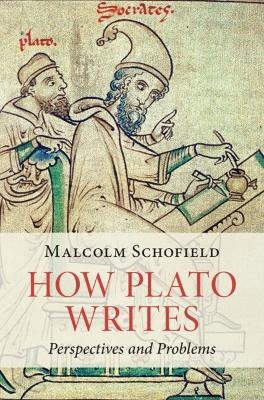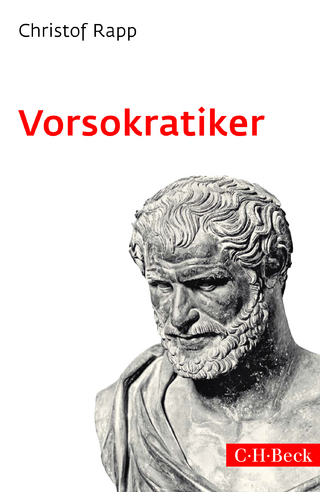
How Plato Writes
Cambridge University Press (Verlag)
978-1-108-48308-7 (ISBN)
Plato is a philosophical writer of unusual and ingenious versatility. His works engage in argument but are also full of allegory, imagery, myth, paradox and intertextuality. He astutely characterises the participants whom he portrays in conversation. Sometimes he composes fictive dialogues in dramatic form while at other times he does so as narratives. In this book, world-renowned scholar Malcolm Schofield illustrates the variety of the literary resources that Plato deploys to achieve his philosophical purposes. He draws key passages for discussion particularly, but not only, from Republic and the less well-known Laws and also shows how reconstructing the original historical context of a dialogue and of its assumed readership is essential to understanding Plato's approach. The book will open the eyes of readers of all levels of expertise to Plato's masterly ability as a writer and how an understanding of this is crucial if we are to appreciate his philosophy.
MALCOLM SCHOFIELD is an Emeritus Professor of Ancient Philosophy at the University of Cambridge, and a Fellow of St John's College. He is a Fellow of the British Academy and an Honorary International Member of the American Academy of Arts and Sciences. He is recognized as one of the major scholars in the world currently working on ancient Greek and Roman philosophy. His first book was An Essay on Anaxagoras (Cambridge, 1980), he co-authored with G. S. Kirk and J. E. Raven the second edition of The Presocratic Philosophers (Cambridge, 1983), and has co-edited numerous other collaborative volumes, including in 2015 with Catherine Rowett a special Heraclitus issue of the journal Rhizomata, and with Tom Griffith a new English edition of Plato's Laws (Cambridge, 2016). He now works mostly on Greek and Roman political philosophy. He was co-editor with Christopher Rowe of The Cambridge History of Greek and Roman Political Thought (Cambridge, 2000). The Stoic Idea of the City (Cambridge, 1991), Saving the City (1999), Plato: Political Philosophy (2006) and Cicero: Political Philosophy (2021) are among his major solo publications.
Part I. Approaches to the Corpus: 1. Plato in his Time and Place; 2. When and Why Did Plato Write Narrated Dialogues?; 3. Against System: the Historical Plato in the Mid-Victorian Era; Part II. Argument and Dialogue Architecture: 4. Callicles' Return: Gorgias 509-22 Reconsidered; 5. Likeness and Likenesses in the Parmenides; 6. The Elusiveness of Cratylus in the Cratylus; Part III. Myth and Allegory in the Republic: 7. The Noble Lie; 8. The Cave; Part IV. Projects, Paradoxes, and Literary Registers in the Laws: 9. Religion and Philosophy in the Laws; 10. The Laws' Two Projects; 11. Plato, Xenophon, and the laws of Lycurgus; 12. Injury, Injustice, and the Involuntary in the Laws; 13. Plato's Marionette; 14. Paradoxes of Childhood and Play in Heraclitus and Plato.
| Erscheinungsdatum | 17.08.2023 |
|---|---|
| Zusatzinfo | Worked examples or Exercises |
| Verlagsort | Cambridge |
| Sprache | englisch |
| Maße | 160 x 235 mm |
| Gewicht | 610 g |
| Themenwelt | Literatur ► Klassiker / Moderne Klassiker |
| Geisteswissenschaften ► Philosophie ► Philosophie Altertum / Antike | |
| Geisteswissenschaften ► Sprach- / Literaturwissenschaft ► Anglistik / Amerikanistik | |
| Geisteswissenschaften ► Sprach- / Literaturwissenschaft ► Literaturwissenschaft | |
| ISBN-10 | 1-108-48308-9 / 1108483089 |
| ISBN-13 | 978-1-108-48308-7 / 9781108483087 |
| Zustand | Neuware |
| Informationen gemäß Produktsicherheitsverordnung (GPSR) | |
| Haben Sie eine Frage zum Produkt? |
aus dem Bereich


